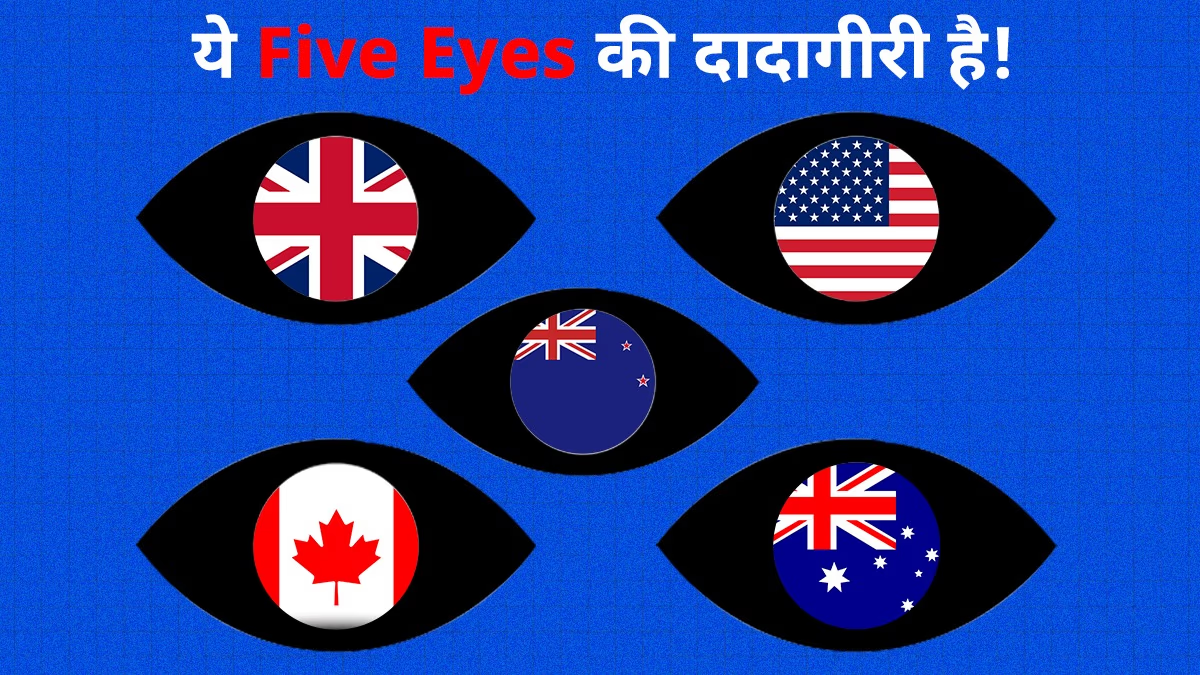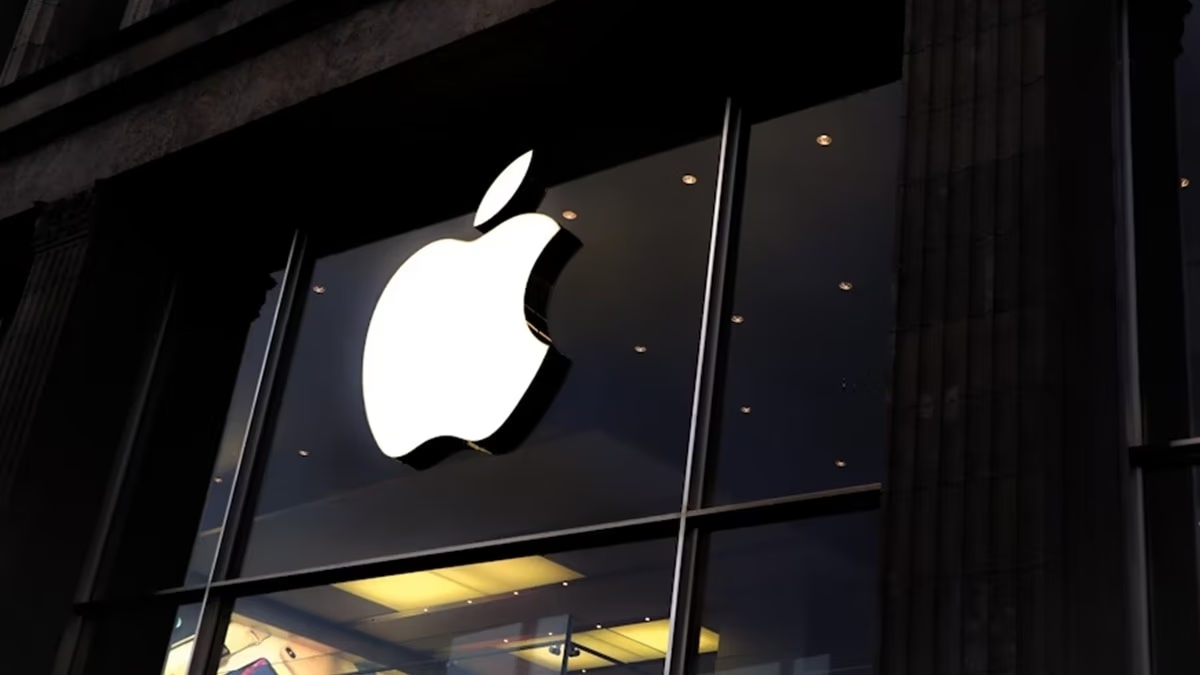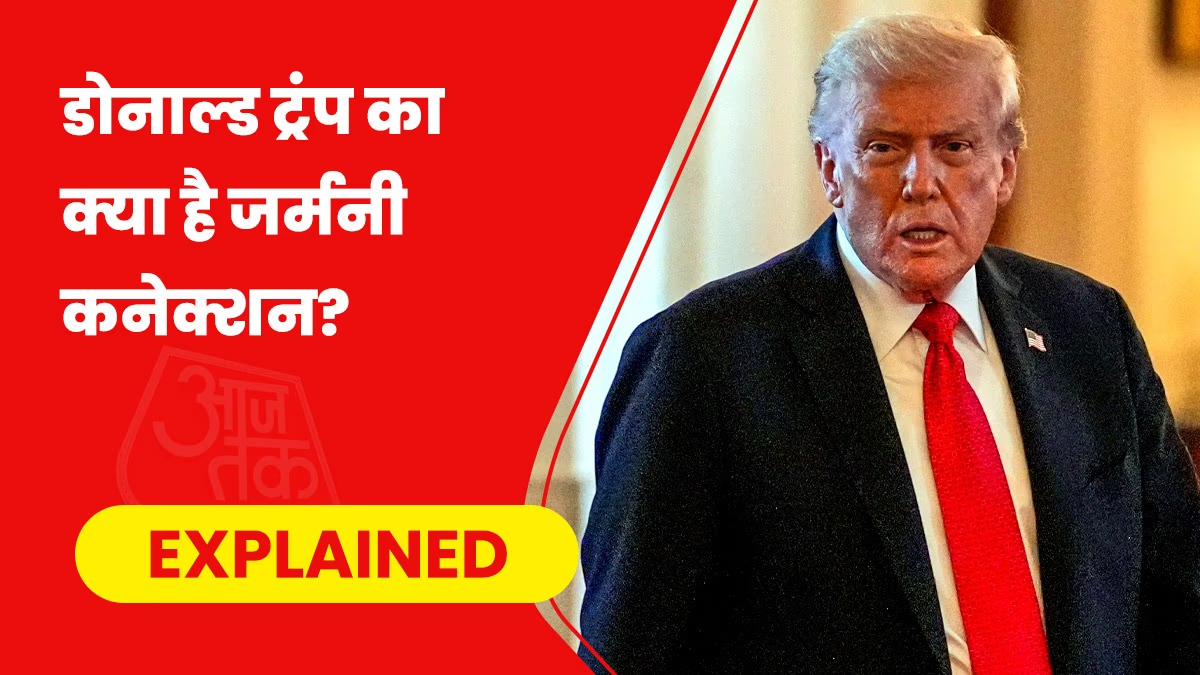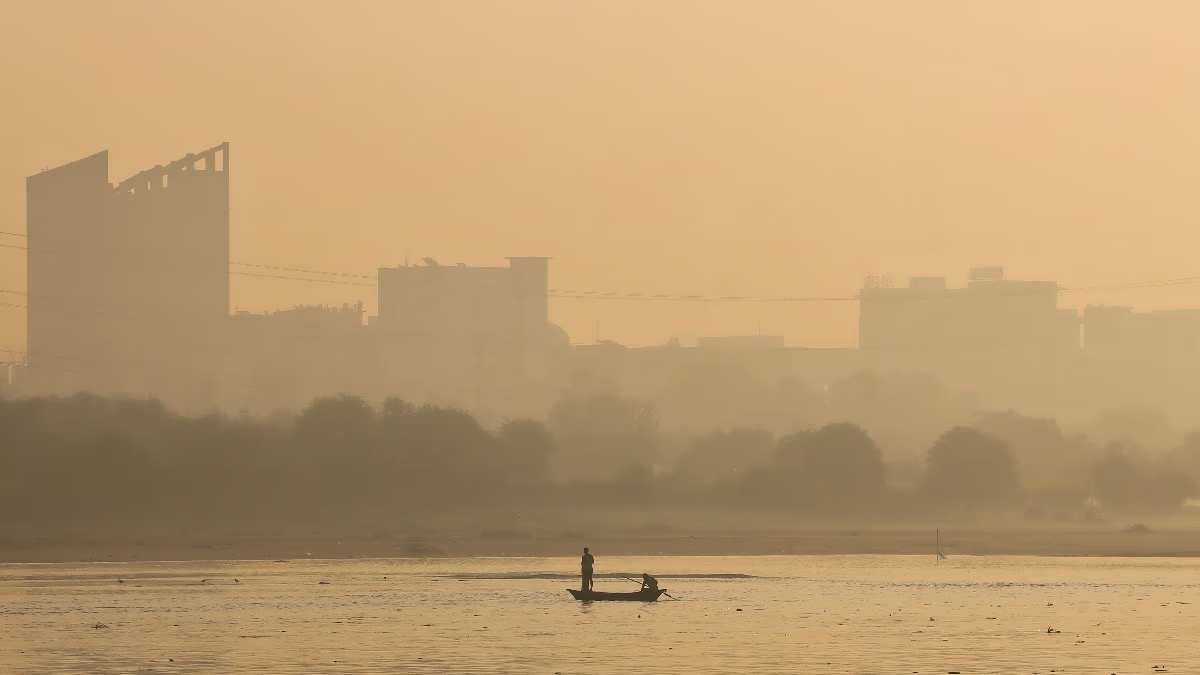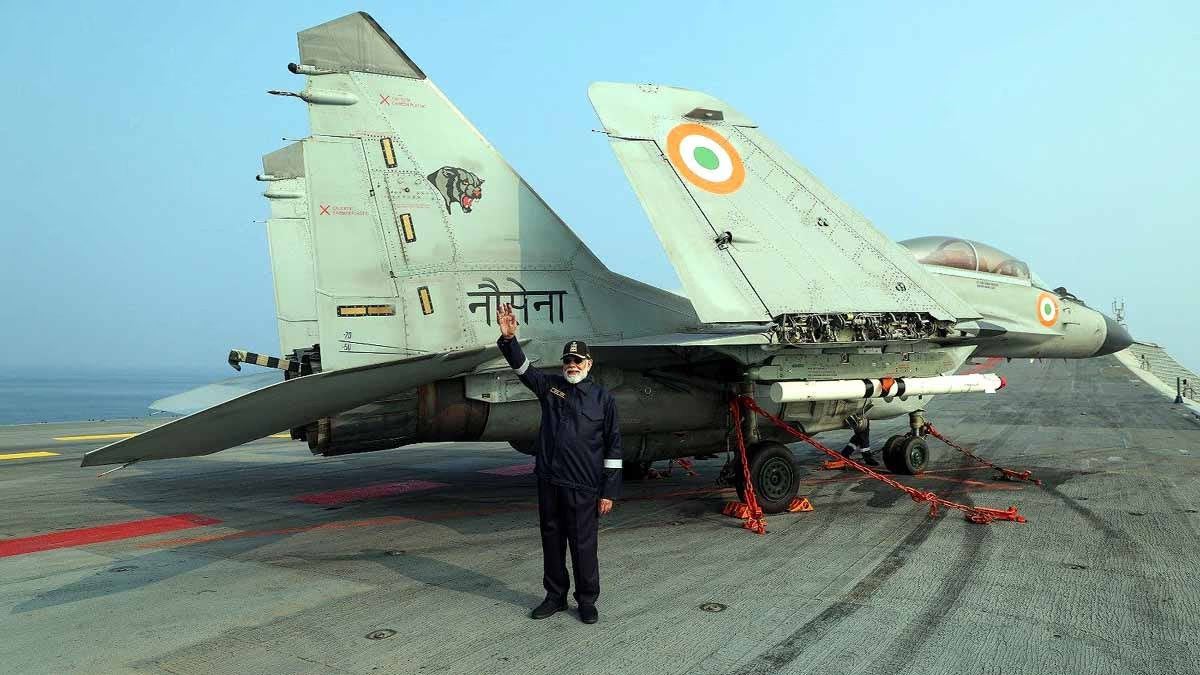The FIVE EYES (FVEY) is a coalition of five powerful countries exerting their dominance under the guise of public safety. Blinded by colonial hangover, these five English-speaking wealthy nations justify their global surveillance, phone tapping, covert operations, and military and civil intelligence activities as acts of national security. America, Canada, Australia, New Zealand, and the UK are the members of this 'elite' club.
These countries have together established a formidable global intelligence network. They exploit inputs from global surveillance for their national interests and as a leverage over other countries as needed. Due to their power and prestige on the world stage, seldom did anyone question their activities for several decades. However, with the current disarray in the global order, their actions are now frequently scrutinized.
Currently, Canadian Prime Minister Justin Trudeau is attempting a similar tactic against India. Nevertheless, India has robustly communicated to Canada that it does not have the time to entertain the audacity and coercion of The FIVE EYES.
In simple terms, FIVE EYES is a coalition formed by five nations to conduct surveillance around the globe. The intelligence gathered is shared among these countries. In an abruptly convened press conference on Monday, Canadian Prime Minister Justin Trudeau stated that Canada shared all pertinent information and inputs with the FIVE EYES countries, alleging the involvement of Indian diplomats in the murder of Khalistani terrorist Nijjar last year, as per Canada’s claims.
The FIVE EYES came into existence as the world was recuperating from the shocks of World War II. The end of British dominance, the rise of America as a superpower, and the emergence of Soviet Russia in opposition created turmoil in the Western world. They needed an organization to keep tabs on their global adversaries and gather intelligence beyond policies and protocols. The collected information was meant to be shared among member countries to protect their so-called national interests.
The rise of China over the last few decades also nudged these countries into forming a unified forum for intelligence-sharing as a counterbalance measure.
In 1943, recognizing this necessity, the US and the UK entered a treaty. Post this agreement, both formally collaborated on signal intelligence, designated as the British-U.S. Communication Intelligence Agreement (BRUSA). In 1946, this agreement evolved into the UKUSA, encompassing diverse communication intelligence aspects. The member countries participated in various surveillance and Signal Intelligence (SIGINT) operations. Canada joined this group in 1948, followed by Australia and New Zealand in 1956, thus bringing FIVE EYES into being.
Over time, this alliance expanded its reach and became a central part of global intelligence and security operations.
The name FIVE EYES supposedly originated from a classified document titled "EYES ONLY". In intelligence parlance, "EYES ONLY" documents are highly confidential and meant only for viewing, with restrictions on printing or copying. They can only be read visually, ensuring utmost security.
Interestingly, although these intelligence agencies had existed for years, the public was unaware until the 1980s. This secrecy persisted until the UKUSA agreement files were released in 2010, unveiling the organization to the world.
Relying on this covert network, Canada's Prime Minister is exerting pressure on India, claiming Indian diplomats are 'persons of interest' in the assassination of Khalistani terrorist Nijjar. India firmly rejected Trudeau's assertion, counteracting by asking six Canadian diplomats in Delhi to leave the country and recalling its High Commissioner from Canada.
In an interview with a Canadian TV channel, the US Ambassador to Canada, David Cohen, disclosed that the intelligence shared with FIVE EYES members enabled Canada to allege the supposed involvement of Indian agents in Nijjar’s murder.
Trudeau believes leveraging FIVE EYES to pressure countries like the US, UK, New Zealand, and Australia against India could secure votes from Sikh extremists in Canada, where elections are due in a few months.
Following the Canadian script, the US is also voicing concerns against Indian interests in the Nijjar case. The State Department spokesman, Matthew Miller, expressed in a daily press briefing that India wasn't cooperating with Canada in investigating the Nijjar case. He said, "Regarding Canada's situation, we've made it clear that the allegations are extremely serious and should be taken seriously. We wanted the Indian government to cooperate with Canada in the investigation; however, they've chosen not to."
While refusing to comment on the strained India-Canada relations, Miller reiterated their demand for India to take the allegations seriously and collaborate with Canada's investigation, noting India's contrary route.
New Zealand, another FIVE EYES participant, commented on the matter with its Foreign Minister Winston Peters acknowledging being informed by Canada. He remarked, "If the alleged criminal conduct reported by Canadian law enforcement becomes proven, it would be highly concerning." However, New Zealand refrained from naming India.
Last year, Australia, one more FIVE EYES partner, also issued a statement on the matter, albeit cautiously worded. The Australian High Commissioner to India, Philip Green, noted that "Australia is engaging with India more as a friend than a FIVE EYES partner on this issue... (We) respect India with whom our relations are mature. We conduct these discussions behind closed doors sensitively and carefully."
Essentially, Trudeau is deploying pressure politics against India and articulating points which, through the lens of international law and treaties, appear immature, baseless, and naive. India has unequivocally dismissed Canada's pressure tactic.
